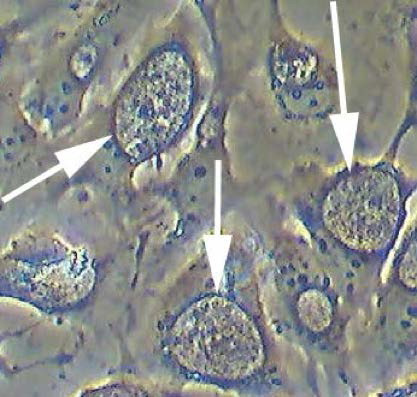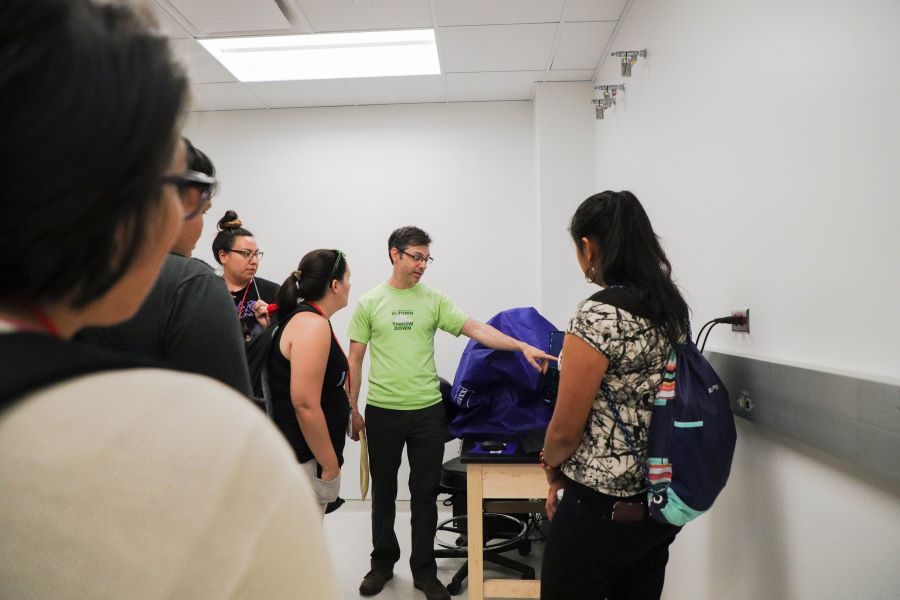Ouellette Laboratory
Uncovering the Consequences of Reductive Evolution on Bacterial Physiology


Image of McCoy cells infected with C. trachomatis L2. Arrows indicate chlamydial inclusions within cells. Each inclusion is filled with hundreds of individual organisms.
As Chlamydia has adapted to an intracellular niche, it has lost many genes that are present in free-living bacteria. These genes/gene pathways that have been lost through reductive evolution (Muller’s Ratchet) typically encode metabolic pathways to synthesize, for example, amino acids. Since Chlamydia relies on its host cell for many nutrients, it is not surprising that it would eliminate these types of genes. However, Chlamydia has also eliminated genes that are considered essential for viability or pathogenesis in many other bacteria. This raises many interesting questions that are the focus of research by Dr. Ouellette and his lab.
Conversely, when Chlamydia has retained genes that are atypical for Gram-negative bacteria (e.g., genes normally found in Gram-positive bacteria), this is also interesting and suggests a function that is important to chlamydial growth otherwise these genes would have been deleted.

Join Our Lab
The Ouellette Lab offers opportunities in research to students at the high school, undergraduate and graduate levels, as well as to postdoctoral scholars. If you have an interest in hypothesis-driven research and mastering techniques that are widely applicable across biomedical disciplines, please email Dr. Ouellette. Postdoc applicants are welcome to contact Dr. Ouellette about potential lab openings. The Ouellette Lab is looking for graduate students to help investigate unique aspects of the biology of the bacterial pathogen, Chlamydia.